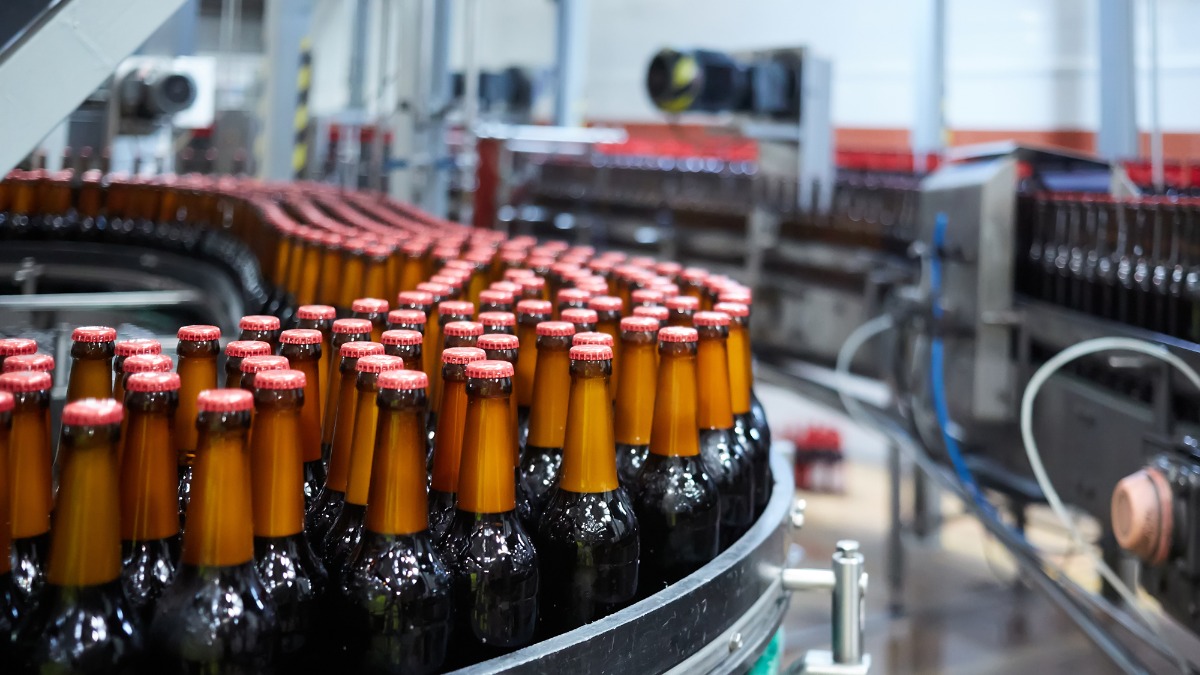Clean water results in better food and beverage products - ask DSC Mechancial how we can help you achieve those goals!
February 14, 2024

Water purity is a critical factor that profoundly impacts the quality, safety, and overall characteristics of food and beverage products.
As one of the primary ingredients used in manufacturing and processing, water plays a multifaceted role in shaping the sensory attributes, shelf-life, and consumer perception of these products. From taste and texture to appearance and safety, the purity of water directly influences every aspect of the final food and beverage offerings.
Improves taste and flavor
One of the most significant ways water purity affects food and beverage products is through taste and flavor. Water serves as a solvent, extracting and carrying various compounds present in ingredients during processing. Any impurities in water, such as minerals, chemicals, or organic matter, can alter the taste profile of the final product. For example, excessive levels of chlorine or sulfur compounds in water may impart undesirable off-flavors to beverages or cooked foods, diminishing their palatability and consumer appeal. Conversely, high-quality, pure water enhances the natural flavors of ingredients, resulting in a more vibrant and enjoyable sensory experience for consumers.
Furthermore, water purity plays a crucial role in determining the texture and consistency of food and beverage products. In baking, for instance, the precise composition of water affects the development of gluten in dough, influencing the texture of bread and pastry products. Similarly, in beverages like coffee or tea, the mineral content and pH of water can impact the extraction process, affecting the body, clarity, and mouthfeel of the final drink. Consistent water quality is essential for achieving desired product characteristics and ensuring uniformity across batches. Below is an example of microbrewery done by DSC Mechanical.
Improved product safety and shelf-life
Water purity also has significant implications for product safety and shelf-life. Contaminated water can harbor harmful microorganisms, such as bacteria, viruses, and parasites, posing a serious risk of foodborne illness to consumers. Pathogens present in water can contaminate raw ingredients during washing or processing, leading to microbial growth and spoilage of the final product. Additionally, waterborne contaminants may react with food components, accelerating chemical degradation and reducing product shelf-stability. Therefore, stringent measures to ensure water purity are essential for minimizing microbial risks and maintaining product freshness and safety throughout the supply chain.
Moreover, the appearance and visual appeal of food and beverage products are influenced by water quality. In food preparation and cooking, water is often used for blanching, boiling, or steaming ingredients, affecting their color, texture, and overall presentation. Impurities in water, such as sediment or suspended particles, can cloud liquids, discolor vegetables, or leave residue on surfaces, detracting from the aesthetic appeal of the final dish or beverage. Clear, clean water is essential for preserving the natural colors and visual appeal of ingredients, enhancing the overall dining experience for consumers.
Influences manufacturing efficiency and equipment performance
In addition to its direct impact on product quality, water purity also influences manufacturing efficiency and equipment performance in the food and beverage industry. Impurities in water can lead to scaling, corrosion, or fouling of processing equipment, compromising production efficiency and necessitating costly maintenance and downtime. By investing in high-quality water treatment and filtration systems, manufacturers can improve operational reliability, extend equipment lifespan, and reduce production costs in the long run.
These are just a few of the benefits water purity and filtration can have on your business. To learn more or to find out how DSC Mechanical can help, contact us.